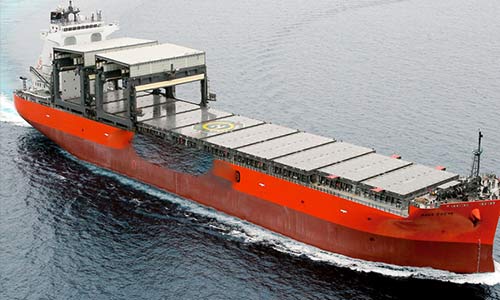*Rules Bayelsa Lacks Jurisdiction Over Offshore Marine Firm
The Federal High Court in Yenagoa has declared that Bayelsa State lacks jurisdiction to impose personal income tax (PAYE) on a Delta State-based marine logistics company for vessels operating at deep offshore oil platforms. The decision, delivered on June 19, 2025, by Justice Isa H. Dashen, granted sweeping declaratory and injunctive reliefs to E.A. Temile & Sons Development Company Nigeria Ltd, effectively nullifying tax assessments worth over N1.3 billion.
The suit, filed via originating summons on February 23, 2023 (Suit No. FHC/YNG/CS/47/2023), challenged Bayelsa State’s aggressive tax pursuit of the plaintiff, a firm specializing in hiring out vessels for offshore crude oil operations. None of the company’s employees reside or work in Bayelsa, and it maintains no offices, agents, or business presence there. Yet, the Bayelsa State Board of Internal Revenue issued demand notices alleging PAYE liabilities tied to four vessels — MV Lord A10, MV A30, MV A60, and MV Warami — deployed at the Sea Eagle platform (15 km offshore) and Bonga Deep Offshore field (120 km offshore).
At the heart of the case were pure questions of law under the Personal Income Tax Act (PITA), Cap. P8, Laws of the Federation of Nigeria 2004 (as amended in 2011), particularly Section 2, which ties PAYE liability to an employee’s place of residence. The plaintiff, represented by Dr. Jonathan Ekperusi (PhD), argued that without resident personnel in Bayelsa, no tax nexus exists. It further contended that offshore operations fall beyond state boundaries, citing the Supreme Court’s 2001 boundary ruling in Attorney General of the Federation v. Attorney General of Abia State & 35 Ors (LPELR-24862(SC)), which limits littoral states’ seaward reach to the low-water mark or inland waters.
The plaintiff bolstered its case with Federal Inland Revenue Service (FIRS) Circular No. 2021/13, which reserves taxation of seafarers and offshore workers exclusively for federal authorities. Affidavit evidence from Nyoreme Mabamidje, the company’s chartered accountant consultant, included tax remittance proofs to Delta and Lagos States where its staff actually reside, alongside unchallenged exhibits showing no Bayelsa footprint.
Bayelsa State, through its Attorney General and counsel E. Cocodia, countered that the vessels’ “operational proximity” to its offshore areas implied economic activity and residency, triggering state PAYE under PITA. It relied on letters from the Joint Tax Board (JTB) and Revenue Mobilisation, Allocation and Fiscal Commission (RMAFC) purportedly affirming taxing rights over linked platforms. The state accused the plaintiff of failing to disprove personnel presence and dismissed the FIRS circular as non-binding where territorial ties exist.
Before delving into the merits, Justice Dashen swiftly dismissed Bayelsa’s March 20, 2023, preliminary objection challenging the court’s jurisdiction. The defendant argued the matter belonged to the Tax Appeal Tribunal (TAT) or state courts, as it involved state-collectible taxes outside Section 251(1)(a)-(s) of the 1999 Constitution (as amended). The plaintiff invoked Sections 251(1)(b) (federal taxation of businesses) and 251(1)(g) (admiralty jurisdiction over shipping and navigation), plus the Admiralty Jurisdiction Act 1991.
In a detailed analysis, the judge affirmed the Federal High Court’s primacy, citing precedents like TSKJ Construcoes v. RRS (2017 LPELR-42868(CA)) and Nwanze v. NRC (2022 LPELR-59631(SC)). “The principal issue is whether the Bayelsa State Government can lawfully impose taxes on vessels and seafarers engaged in offshore operations far removed from the state’s territory,” Dashen wrote. “This falls squarely under admiralty and federal taxation issues.” The TAT’s role was deemed limited to federal assessments, not jurisdictional maritime disputes.
Fusing issues from both sides, the court resolved three key questions in the plaintiff’s favor:
Employee Residency: PAYE hinges on habitual physical residence (PITA First Schedule). Uncontroverted evidence showed no Bayelsa residents among the plaintiff’s staff. Bayelsa failed its burden of proof, per Buhari v. INEC (2008 LPELR-814(SC)). “He who asserts must prove,” the judge quoted.
Offshore Operations and Tax Jurisdiction: Platforms at 15 km and 120 km exceed Bayelsa’s constitutional boundaries. The Allocation of Revenue Act 2004 applies only to derivation, not taxing powers. FIRS Circular 2021/13 remains unchallenged, preempting state claims on vessel workers.
Reliefs Entitlement: With “credible and cogent evidence” untraversed — per Long-John v. Blakk (1998 6 NWLR (Pt. 555) 524) — the plaintiff met the preponderance standard for declaratory reliefs.
All four reliefs were granted:
Dr. Ekperusi hailed the ruling as “a victory for statutory clarity and constitutional limits,” urging states to respect FIRS guidelines. Bayelsa officials were unavailable for comment, but the decision, certified true on September 15, 2025, may spur appeals, testing Supreme Court boundaries anew.
Dr. Ekperusi hailed the ruling as “a victory for statutory clarity and constitutional limits,” urging states to respect FIRS guidelines. Bayelsa officials were unavailable for comment, but the decision, certified true on September 15, 2025, may spur appeals, testing Supreme Court boundaries anew.

